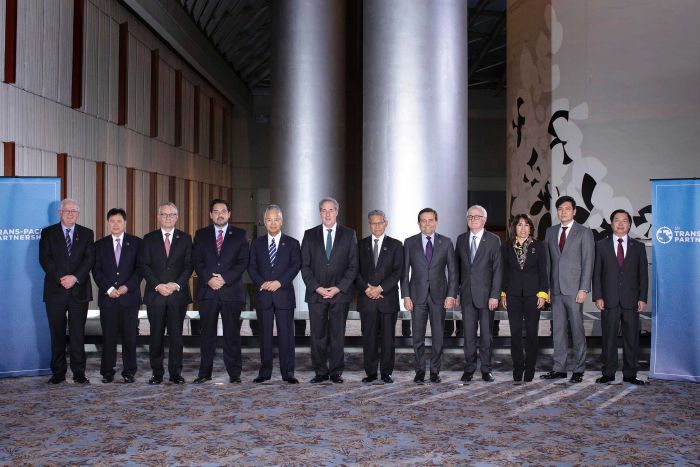the TPP: agreement reached on secret trade deal
The Trans Pacific Partnership is coming soon to an economy near you.
This week, US-lead negotiations for the TPP reached consensus after a marathon seven years of back and forth on the biggest trade deal of our time. This means that while an agreement has been reached, the TPP still needs to be passed into law by the individual nations.
The TPP is the capstone of Obama’s presidential career. Forget about Obamacare, drone warfare, and that awkwardly self-promotional interview with David Attenborough, because the TPP is it. It’s the trade deal to tell your grandkids about… provided they’re about to go to bed.
A free trade agreement between twelve Pacific nations, the TPP covers about 40% of the world’s economy. As a pet project of US business interests, the participating nations skew figuratively west of the Pacific. It includes all of North America, Australia, New Zealand, Japan, Malaysia, Peru, Brunei, Chile, Singapore and Vietnam.
China, on the other hand, isn’t so keen. I’m sure it’s nothing personal, especially since Obama publicly stated the deal is designed to stop China from writing ‘the rules of the 21st century global economy’. The TPP, he continues, is an ‘even playing field’.
So far, the TPP has largely flown under the radar, due to it being incredibly boring and difficult to understand. But the TPP, if passed into law, has the potential to re-shape the way we trade with our Pacific neighbours.
For starters, it’s going to wipe out 98% of tariffs on exports from Australia. The Department of Trade tells us this will bring untold prosperity to a bunch of Aussie industries – from manufacturing to agriculture. Exports of dairy, sugar and beef are particular winners, with reduced tariffs meaning better access to foreign markets keen for Australian produce. According to the Guardian, this growth can buffer us from the inevitable burn out of the mining boom and open up billions of dollars of trade. Ka-Ching.
No wonder Turnbull is calling it ‘a gigantic foundation stone of our future prosperity’. He likes money – or so I heard.
While some, like Amy Auster on the Conversation, are stoked about the TPP’s potential to ‘grow our pie’, others are concerned about who will get to eat it.
Perhaps the biggest sticking point is the secrecy surrounding the exact details of the deal. Wikileaks managed to fill in a few of the gaps, releasing documents that suggest the TPP is going to benefit big business considerably more than anybody else.
The documents showed, among other things, that the TPP will contain Investor State Dispute Settlement Clauses. These little addendums allow companies like, say, the US-based Renco Group and UNCITRAL to sue countries like, say, Peru for $800 million in lost profits. Why? Peru closed a gold mine, La Oroya, that in its heyday poisoned up to 35,000 nearby residents with lead.
The leaked documents also suggest the TPP will increase control of US pharmaceutical companies over the development of new medicines. US Pharmaceutical companies want their products to be protected from generic versions for twelve years, but in the talks this week, Trade Minister Andrew Robb has managed to argue it down to five. Nevertheless, five years is still a long time and as Martin Shkreli helpfully illustrated for us last week, giving more power to pharmaceutical companies is unlikely to result in more affordable medicine.
The government has promised full transparency before the TPP is official, and this will form the next step in the TPP passing as law in Australia. Since what’s good for the economy isn’t always good for the people in the economy, the jury is still out on whether or not the biggest trade deal of our time is going to help or hinder us in the long run.
(Image credit: Reuters)


